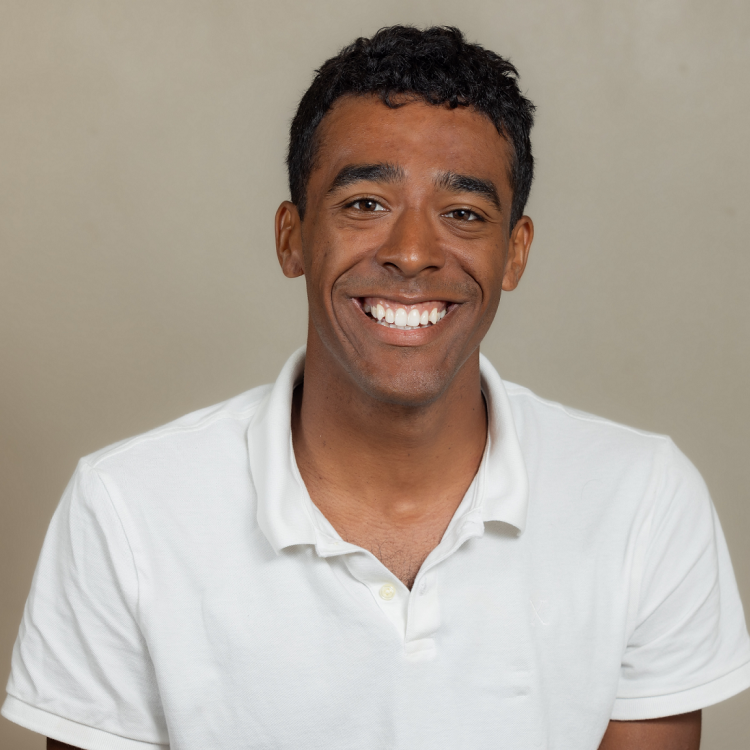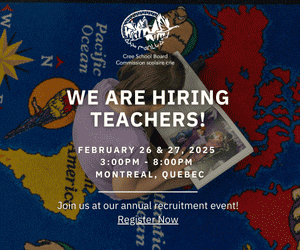It was a gruelling interview during midterms. Jayden Parker was sleep-deprived after his exams and a long flight home to Bermuda, where a panel was grilling him on his strengths and weaknesses. Mostly his weaknesses.
"I walked out of there and thought, I didn't get it'," says Parker, a fourth-year biomedical student at the University of Guelph. "I was convinced it didn't go well."
Three hours later, during dinner with his grandparents, he received the call. By the time he hung up, one of the most prestigious scholarships in the world, the Rhodes Scholarship, was officially his.

Jayden Parker
"I was just blown away," he says. "I called my mom, who was 12 hours away. I woke her up at 6 a.m. We were all crying. Because this is her achievement as much as it's mine. And it represents a lot of family history and struggle, and my mom's willingness to push me at a young age."
He emphasizes that much of his success is owed to his mother.
"My mom raised me and my little sister by herself in Bermuda," says Parker. "I was not going to any of the prestigious schools without a scholarship. My mom worked so hard to take care of us - pushing me to volunteer at the aquarium, pushing me to apply to these scholarships. I owe this to her."
At age 13, Parker was dropped off out of the blue at the local aquarium in Flatt's Village, Bermuda. Without telling him, his mother enrolled him in a summer volunteer program, hoping to get her son out of the house.
Little did anyone know it would all start there - Parker's love for animal rehabilitation and environmental conservation, his desire to go to U of G and his journey to become Bermuda's 2025 Rhodes Scholar.
"I realized then this is what I was made for," he says. "But when you grow up on a tiny subtropical island with colourful fish, beautiful birds, pink sand against the ocean, watching turtles poke their heads out of the water, it's hard to leave without a love for the environment, a love for animals."
Road to Rhodes Scholarship began with passion for environment
Born in Montréal, raised in Bermuda, Parker obtained the Rhodes Scholarship for his "exceptional academic achievements and dedication to environmental conservation," the awarding office notes.
With a 91 per cent GPA and hundreds of hours spent volunteering in animal rescue projects, at hospitals and veterinarian clinics, Parker has dedicated eight years of his life to the rehabilitation of seabirds, sea turtles, marine iguanas and fish. Thanks to the Bermuda Aquarium, Museum and Zoo's volunteer program, he has travelled to the Galapagos Islands to work with Galapagos tortoises and to plant endemic trees.
He is involved with U of G's Wildlife Club and Future Vets Club. At the Ontario Veterinary College (OVC), he gained hands-on research experience with dairy and beef cattle, learning from the experts and witnessing their passion up close.
This year, the Rhodes Scholarship will fully fund his education at the University of Oxford, where he plans to obtain two master's degrees in two years: a master of biodiversity conservation and nature recovery and a master of environmental change and management.
After his time at Oxford, Parker plans to return to Guelph to study at OVC.
"I came to U of G for its reputation in sustainability, and this was the only place I felt I could explore my interest in the environment," he says.
He adds that he wants to stay connected to the campus that first inspired him.
U of G profs inspire Rhodes Scholar's journey
"Many of my professors were very welcoming, down to-earth and inspiring," he says. "In my zoology program, we got to do these amazing labs, dissecting and learning about little sharks, snakes and birds. Dr. Sarah Schorno, the professor of that course, really helped to inspire my passion. I'm so grateful to her."
The diversity of interdisciplinary subjects at U of G helped broaden his perspectives and interests, he says.
"Not only was I studying biomedical science, but there was so much to supplement my studies, learning about climate change, the philosophy of medicine, biological anthropology, environmental subjects and conservation."
He also found the mental health support at U of G critical, taking advantage of its counselling programs.
"In recent years, I've always appreciated how U of G is open to conversations and considerations about mental health," he says.
He thanks the many groups and individuals who have supported him.
"I thank the Centennial Bermuda Foundation and the Orbis Foundation for their financial support of my journey, the Bermuda Zoological Society for the host of opportunities they provided me, the incredible and passionate professors at U of G and my friends and family for their unending support."
As the first of his family to pursue a master's degree, Parker says he carries a lot of responsibility. He thought he would never become a Rhodes Scholar, that being a finalist would have been good enough. But he also remembers one of the biggest lessons imparted by his mother:
"Nothing is impossible," he says.













